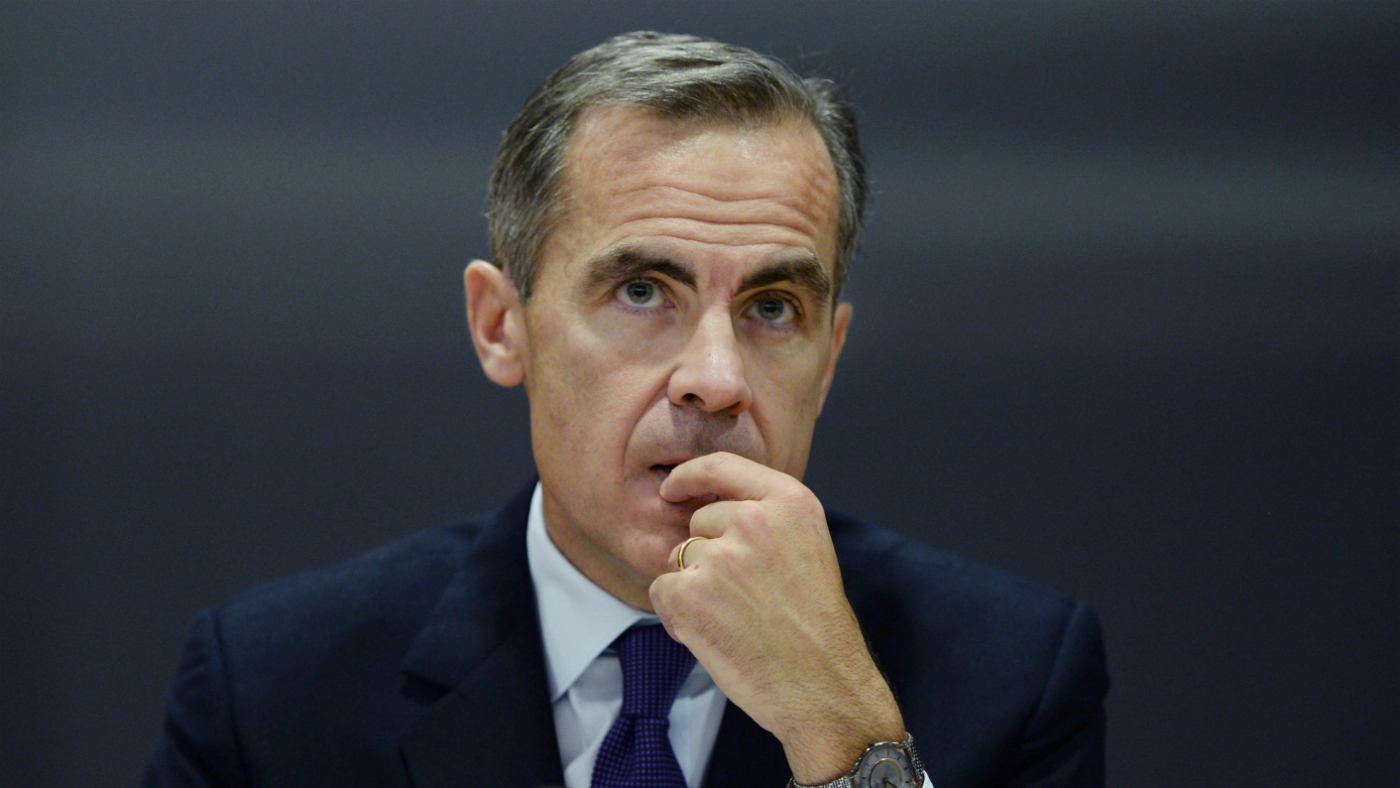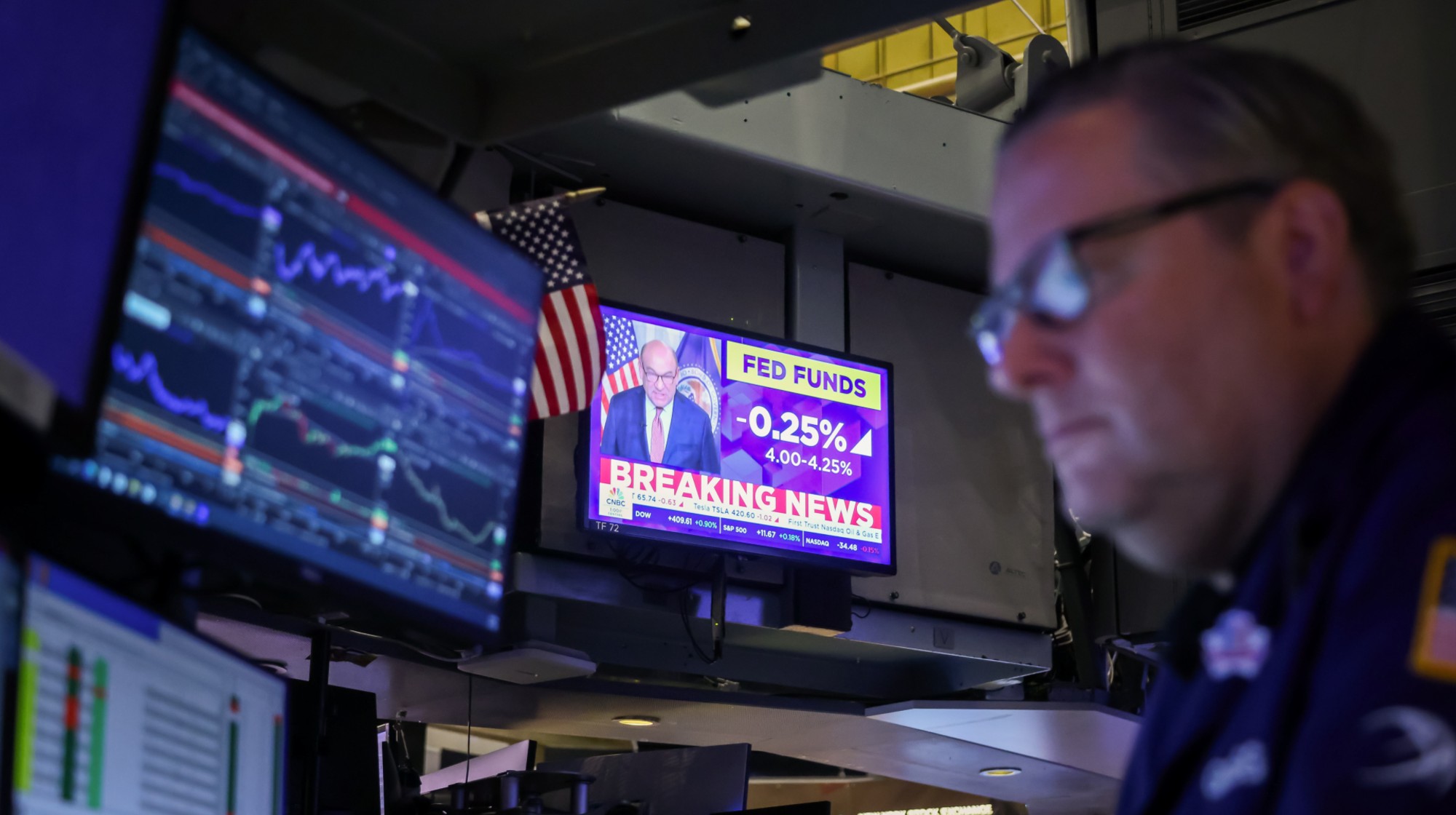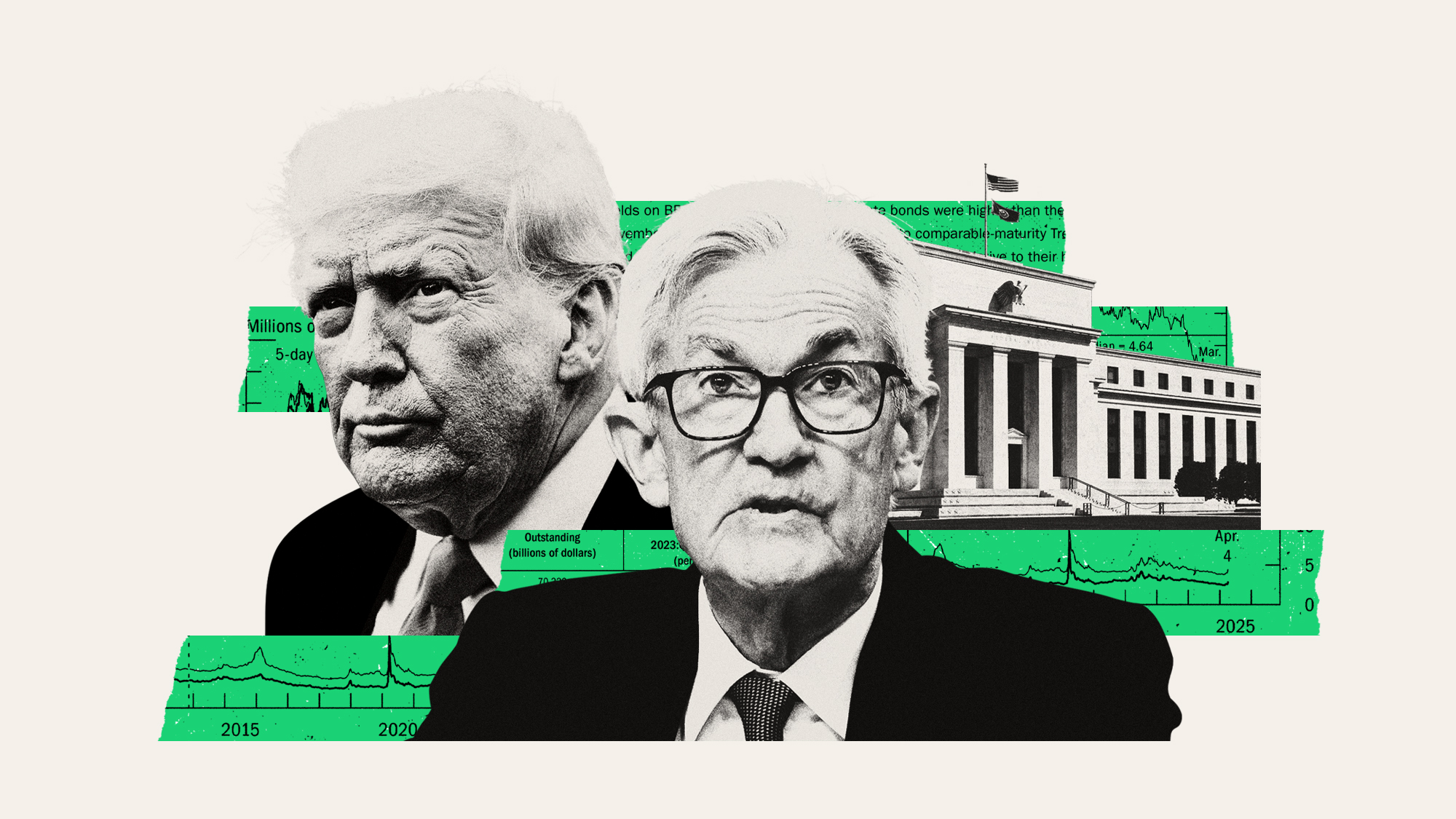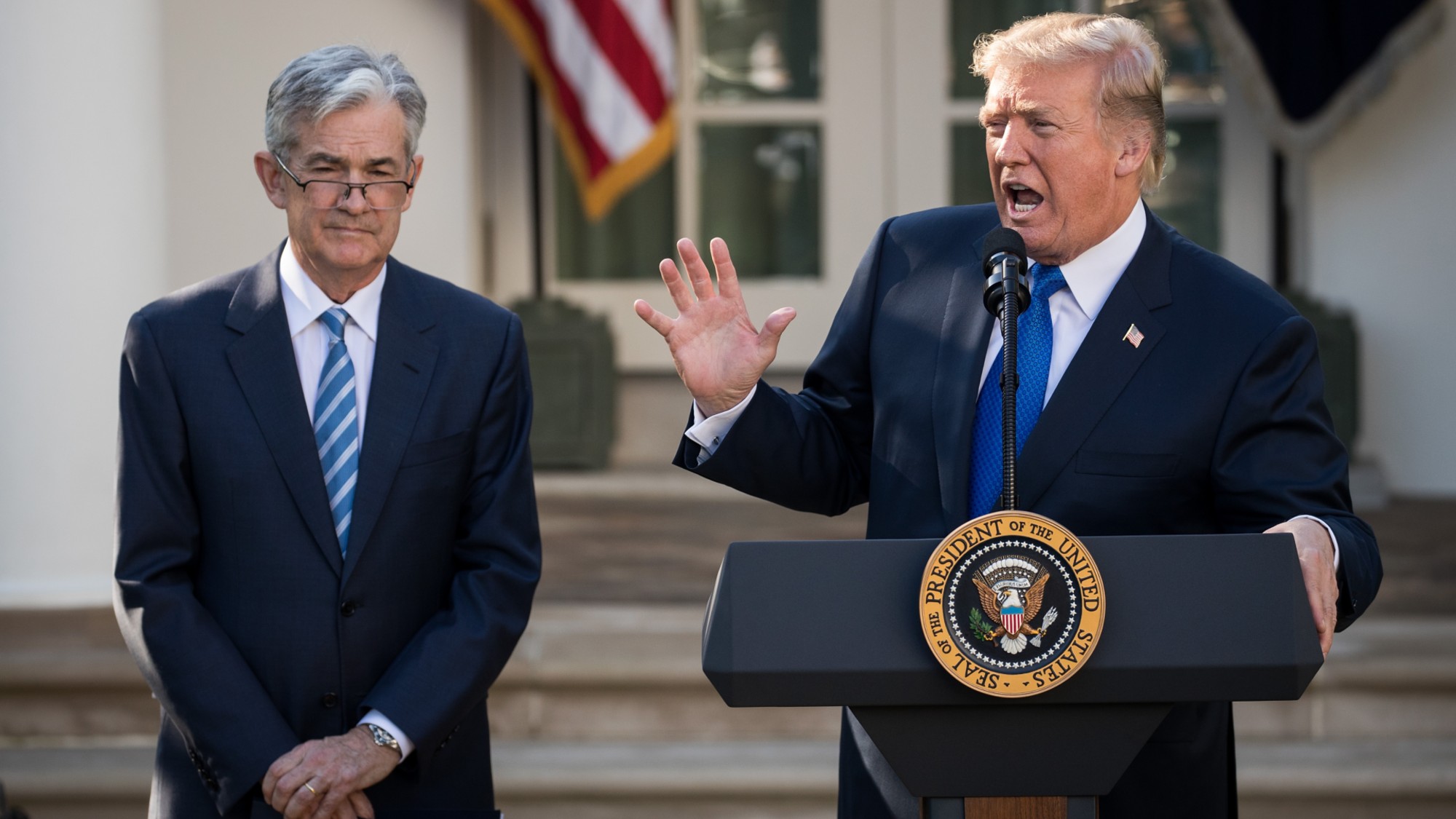Pound plunges after Bank of England's dovish rates signal
Central bank revises its growth forecast for UK economy

A free daily email with the biggest news stories of the day – and the best features from TheWeek.com
You are now subscribed
Your newsletter sign-up was successful
UK interest rates could be cut to zero
28 June
In the not too distant past, all the talk was of when the Bank of England might vote to raise the base interest rate, after almost seven years of a record 0.5 per cent low.
Now, as markets tumble in response to fears of a post-EU referendum recession, the rumour mill is turning over when rates might go the other way.
The Week
Escape your echo chamber. Get the facts behind the news, plus analysis from multiple perspectives.

Sign up for The Week's Free Newsletters
From our morning news briefing to a weekly Good News Newsletter, get the best of The Week delivered directly to your inbox.
From our morning news briefing to a weekly Good News Newsletter, get the best of The Week delivered directly to your inbox.
"The Brexit vote means traders are predicting lower growth - and interest rates - for much longer," says the Daily Telegraph. "Markets have fully priced in a rate cut by the end of this year. Rates aren't expected to rise again until November... November 2020, that is."
Many may remember George Osborne talking about mortgage costs rising post-Brexit, predicting the pound would slump and prompt higher import costs, spiralling inflation.
Sterling has indeed plummeted – hitting new 30-year lows on both Friday and Monday before recovering modestly this morning. So this speculation of a rates cut may come as something of a surprise.
It was always on the cards, however. Bank of England governor Mark Carney said in the lead up to the referendum that Brexit could require rates to be cut in the short term to stimulate demand, rising later to combat the inevitable inflationary effects.
A free daily email with the biggest news stories of the day – and the best features from TheWeek.com
The economy is expected to take a near-term hit and rate-setters could make money even cheaper to help prop it up. Hargreaves Lansdown told Money Observer there is now a 50-50 chance of a base-rate cut to 0.25 per cent at the next meeting in July.
The likelihood of a rates cut by the end of the year is set at 80 per cent – and there is even a 15 per cent chance that by 2017, rates will be negative.
This isn't good news for everyone, of course. The Guardian notes that falling government bond yields are already hurting pensioner annuity rates; a fall in interest rates will further undermine returns on pension funds that provide more flexible income streams.
For homeowners or prospective property purchasers, there could be a positive in terms of lower mortgage rates – swap rates between banks are already said to be falling.
The Daily Mail suggests, though, that buyers should fix for longer terms of five years, as the likelihood of an eventual swing back in rates – as well as the ending of a Bank of England funding scheme in 2018 – could mean a shock rise at the end of a two-year fixed term.
Global interest rates decisions wait until UK votes on EU
16 June
It may appear that every economic debate at the minute has been reduced to the impact next week's EU referendum will have.
That's not surprising. In the view of the world's central bank policymakers at least, the fact that the UK might vote to leave the EU has become the single biggest risk facing the global economy.
Yesterday, the US Federal Reserve decided to keep its benchmark rates on hold between 0.25 and 0.5 per cent. The decision was widely expected and was effectively guaranteed last week, when a report showed a paltry 38,000 jobs had been created across the country in May.
But the ripple effects from a possible UK vote to leave the European Union also weighed on rate-setters' minds, chair Janet Yellen revealed.
"Brexit, the upcoming UK decision on whether or not to leave the European Union, is something we discussed and I think it’s fair to say it’s one of the factors that factored into today’s decisions," she said, reports The Guardian.
"Clearly this is a very important decision for the United Kingdom and for Europe. It is a decision that could have consequences for global financial markets. It could have consequences in turn for the US economic outlook."
In addition, the Bank of Japan voted not to change its monetary policy yesterday, defying the expectations of a number of analysts that it would cut already negative rates further to stimulate growth.
"Some BoJ policy board members… signalled ahead of this week’s meeting that they preferred to wait until after the UK votes next week," says the Wall Street Journal. "They were concerned that… the market impact of its move would fade if a Brexit vote rocked global financial markets."
Emphasising the general view, the Bank of England said today the knock-on effects of Brexit were the "largest immediate risk" facing global financial markets, the BBC notes.
Once the vote is out of the way, rate-setters could step into action quickly, either to stimulate demand or, in the US, to get on with one of the two rises it still has pencilled in for this year in the event of a vote to stay in the bloc.
Andrew Walker writes on BBC News that a jobs report in early July would then become critical to prove or counter the claim by Yellen that "progress in the labour market has [not] come to an end".
'Terrible' US jobs data ends hopes of summer rates rise
6 June
Weak jobs data has derailed the Federal Reserve's plan to raise short-term interest rates.
A widely anticipated rate increase at the group's June meeting is almost certainly off the table, while a move at their July summit is also considered highly unlikely.
Instead, says the Wall Street Journal, officials want to wait and see whether the economy remains on track before they act.
The US Labor Department said employers added just 38,000 jobs to their payrolls in May, with the pace of hiring slowing to an average of 116,000 a month over the past quarter.
"We cannot take the resilience of our recovery for granted," said Fed governor Lael Brainard.
In a caution-heavy speech, Brainard spoke of "prudent risk management" and the need for "reassurance that near-term international events will not derail progress toward our goals".
Referring directly to the jobs data, she said the latest report was "sobering" and that it "suggests that the labour market has slowed".
Ian Shepherdson, an analyst at Pantheon Macroeconomics, told the Daily Telegraph the latest figures had "killed" any hopes of higher interest rates this month. He described the jobs report as "terrible".
Attention now turns to Fed chair Janet Yellen (pictured above). She is scheduled to speak on Monday in Philadelphia, where she is expected to update her analysis.
Prior to the latest figures, hiring was steady and inflation showing signs of rising, leading the Fed to feel it was time to raise short-term interest rates by another quarter percentage point.
But it could now be September before any increase is seriously considered.
Interest rates: EU referendum could delay the US Fed
19 May
A decision by the US central bank on whether to increase rates next month could hinge on the perceived likelihood of the UK voting to leave the European Union, according to the minutes of its latest meeting.
Minutes from the Federal Reserve policy meeting in April, published yesterday, have shocked markets worldwide after the news reached them that a June rates rise was very much on the agenda – far earlier than many anticipated. The minutes note that "most" rate-setters reckon a rise might well happen but only if economic data remains strong.
The publication of the minutes comes just a day after a new report pointing to rising inflation, industrial production and construction in the US last month. Last week consumer spending and overall economic expansion were also said to be higher.
Aside from a surprise turnaround in the numbers, there are several risks to the global economy that could give the Fed pause for thought, which is why rate-setters are at this stage keeping their options very open. One of the factors directly mentioned in the minutes is a UK vote to leave the EU – and the turmoil this might unleash on wider markets.
The Fed's next meeting is on 16 June, just a week before the EU referendum. If the polls are still tight by that stage and the Brexit risk looms large, the US central bank might hang on for another month whatever the state of its home economy.
Sal Guatieri, a senior economist at BMO Capital Markets, told the BBC: "A super-cautious [Fed Chair Janet] Yellen might well wait for more convincing evidence of a sustained pickup in the economy and a resolution of Brexit risks before pulling the trigger in July."
Earlier this month Atlanta Federal Reserve president Dennis Lockhart, who is this year a non-voting member of the Federal Reserve Open Markets Committee, admitted to Reuters that Britain's vote on whether to stay in the European Union could "loom large" over the June meeting.
"Brexit could be a source of heightened global uncertainty", he said.
Interest rates: Could they rise again this year in both UK and US?
18 May
Just when markets are retreating in the US as traders re-assess the chances of another interest rate increase as soon as this summer, a rise in the UK seems further off than ever.
But according to one former UK rate-setter, a tightening of borrowing costs by the Bank of England is not as far off as traders believe. Markets are not pricing in the first rates rise in the UK since March 2009 until 2019.
US odds shorten
Shorter odds on a second rates movement in the US in June or July, following the modest increase from near-zero in December, came in the wake of a raft of positive economic data on Tuesday.
The Wall Street Journal notes that "industrial production – a measure of everything made by factories, utilities and mines – surged 0.7 per cent in April, the biggest jump for a single month since November 2014". New house builds and building permits rose 6.6 and 3.6 per cent respectively, pointing to healthy construction activity.
Consumer prices also rose over the month, with the core reading in the Fed's preferred 'personal consumption indicators index' showing a 1.6 per cent increase for March.
Coming on the back of data showing surging consumer spending, analysts reckon the figures point to economic growth jumping from 0.5 per cent in the first three months of the year to 2.5 per cent on an annual basis in the current quarter.
This in turn added weight to comments from three non-voting members of the Federal Reserve's open markets' committee yesterday that a rate rise in the near future is back on the cards.
At a joint appearance at an event in Washington, Atlanta Fed President Dennis Lockhart and his San Francisco Fed counterpart John Williams both said it was likely there would be "two to three" rate rises this year, reports Reuters. Dallas Fed President Robert Kaplan told reporters in Texas he will advocate for a hike at the Fed's upcoming policy meetings in June or July.
Is a UK rise less likely?
In contrast, yesterday the UK's own inflation report was published. It showed a shock fall in price rises in April, as a snap back in travel fares and a decline in clothing costs dragged down a 0.5 per cent advance in March to just 0.3 per cent, says the BBC.
Even on a 'core' basis, stripping out volatile food and fuel, price rises fell back from 1.4 to 1.2 per cent. At a time when almost every economic indicator and piece of anecdotal evidence points to softer growth in the UK, there seems no case for higher rates on this side of the Atlantic.
That may be, writes Andrew Sentence, a former Bank of England rate-setter, in the Daily Telegraph – but the time is coming. Sentence says the UK economy is being constrained by uncertainty around the EU referendum and that the latest BoE forecasts point to a return to steady growth and rising inflation if, as expected, the result is a vote to remain.
He argues that as rates need to rise at least a year and up to two years ahead of when inflationary pressure is expected to build, they may need to increase as soon as the end of this year. The BoE said last week that inflation would be at or above its two per cent target by 2018.
Sentence says that this would put the UK rates cycle within 12 months of the US, "in line with historical precedent".
It would also seem to accord with the more positive view on the economy presented by the latest unemployment data, with new figures today showing a slight dip in unemployment despite the effects of the EU vote. The UK jobless rate is at a low 5.1 per cent and the employment rate has edged up to another new record of 74.2 per cent, notes the BBC.
-
 Local elections 2026: where are they and who is expected to win?
Local elections 2026: where are they and who is expected to win?The Explainer Labour is braced for heavy losses and U-turn on postponing some council elections hasn’t helped the party’s prospects
-
 6 of the world’s most accessible destinations
6 of the world’s most accessible destinationsThe Week Recommends Experience all of Berlin, Singapore and Sydney
-
 How the FCC’s ‘equal time’ rule works
How the FCC’s ‘equal time’ rule worksIn the Spotlight The law is at the heart of the Colbert-CBS conflict
-
 Powell: The Fed’s last hope?
Powell: The Fed’s last hope?Feature Federal Reserve Chairman Jerome Powell fights back against President Trump's claims
-
 The end for central bank independence?
The end for central bank independence?The Explainer Trump’s war on the US Federal Reserve comes at a moment of global weakening in central bank authority
-
 Who will be the next Fed chair?
Who will be the next Fed chair?Today's Big Question Kevin Hassett appears to be Trump’s pick
-
 Should Labour break manifesto pledge and raise taxes?
Should Labour break manifesto pledge and raise taxes?Today's Big Question There are ‘powerful’ fiscal arguments for an income tax rise but it could mean ‘game over’ for the government
-
 What are stablecoins, and why is the government so interested in them?
What are stablecoins, and why is the government so interested in them?The Explainer With the government backing calls for the regulation of certain cryptocurrencies, are stablecoins the future?
-
 Fed cuts interest rates a quarter point
Fed cuts interest rates a quarter pointSpeed Read ‘The cut suggests a broader shift toward concern about cracks forming in the job market’
-
 Trump's threats to fire Jerome Powell are unsettling the markets
Trump's threats to fire Jerome Powell are unsettling the marketsTalking Points Expect a 'period of volatility' if he follows through
-
 How will Wall Street react to the Trump-Powell showdown?
How will Wall Street react to the Trump-Powell showdown?Today's Big Question 'Market turmoil' seems likely